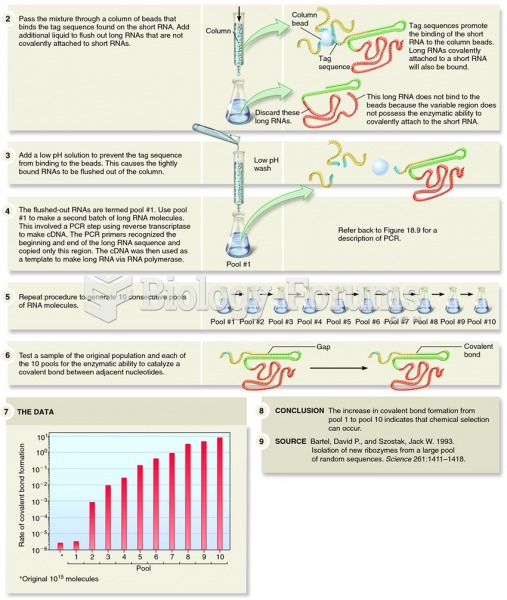|
|
|
Most childhood vaccines are 90–99% effective in preventing disease. Side effects are rarely serious.
Asthma is the most common chronic childhood disease in the world. Most children who develop asthma have symptoms before they are 5 years old.
GI conditions that will keep you out of the U.S. armed services include ulcers, varices, fistulas, esophagitis, gastritis, congenital abnormalities, inflammatory bowel disease, enteritis, colitis, proctitis, duodenal diverticula, malabsorption syndromes, hepatitis, cirrhosis, cysts, abscesses, pancreatitis, polyps, certain hemorrhoids, splenomegaly, hernias, recent abdominal surgery, GI bypass or stomach stapling, and artificial GI openings.
After 5 years of being diagnosed with rheumatoid arthritis, one every three patients will no longer be able to work.
This year, an estimated 1.4 million Americans will have a new or recurrent heart attack.







